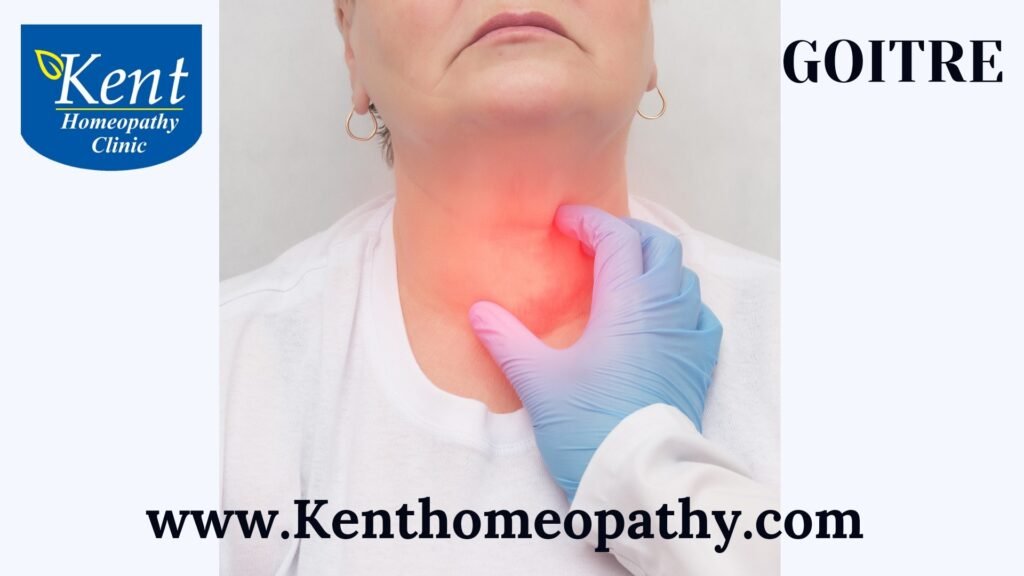Goitre

Goitre, also spelled as goiter, refers to the abnormal enlargement of the thyroid gland, a butterfly-shaped gland located at the base of the neck. This condition can occur due to various underlying factors and may or may not be associated with thyroid dysfunction. Understanding the symptoms, causes, and types of goitre is essential for proper diagnosis and management.
Symptoms:
The symptoms of goitre can vary based on the size and underlying cause of the enlargement. Common signs include:
- Swelling in the Neck: A visible and palpable swelling at the base of the neck is a hallmark symptom of goitre.
- Difficulty Swallowing or Breathing: Large goitres may exert pressure on the esophagus or trachea, leading to difficulty swallowing or breathing.
- Hoarseness: Pressure on the vocal cords can result in changes to the voice, causing hoarseness.
- Coughing: Some individuals with goitre may experience a persistent cough, especially if the thyroid enlargement is pressing on the trachea.
- Throat Tightness or Discomfort: A sensation of tightness or discomfort in the throat may be present.
Causes:
Several factors can contribute to the development of goitre, including:
- Iodine Deficiency: Historically, iodine deficiency has been a significant cause of goitre. Iodine is crucial for the production of thyroid hormones.
- Autoimmune Thyroid Disorders: Conditions like Hashimoto’s thyroiditis or Graves’ disease, which involve the immune system attacking the thyroid, can lead to goitre.
- Thyroid Nodules: The presence of nodules or growths on the thyroid gland can cause enlargement.
- Pregnancy: Pregnancy-related hormonal changes may contribute to the development of goitre.
- Inflammation: Chronic inflammation of the thyroid gland, known as thyroiditis, can lead to goitre.
- Medications: Some medications, such as lithium and certain anti-thyroid drugs, may contribute to goitre formation.
Types:
- Diffuse Goitre: The entire thyroid gland is enlarged, giving a uniform appearance.
- Nodular Goitre: Characterized by the presence of nodules or lumps on the thyroid gland.
- Toxic Goitre: Associated with hyperthyroidism, where the thyroid gland produces excessive thyroid hormones.
- Non-Toxic Goitre: Enlargement of the thyroid gland without abnormal hormone production.
- Endemic Goitre: Common in regions with iodine deficiency, leading to a higher prevalence of goitre.
Regular follow-up and monitoring are crucial for managing goitre, ensuring appropriate treatment adjustments, and addressing any complications. Seeking medical attention for neck swelling or related symptoms is important for timely diagnosis and intervention.
Contact to know more
Contact
Timings
Monday to Saturday:
11:00 AM to 02:30 PM
06:30 PM to 09:00 PM
